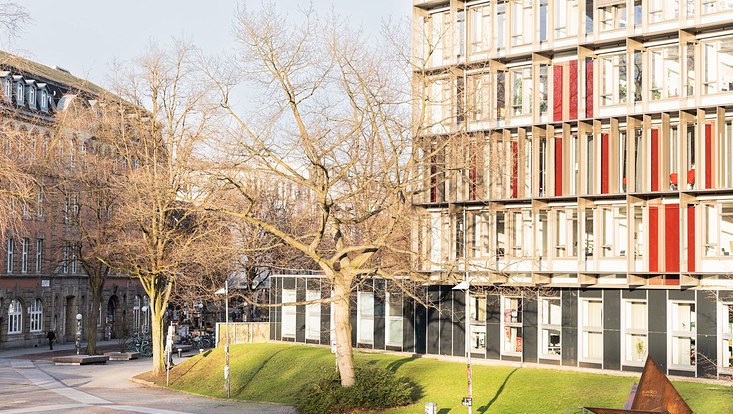28 November 2023
End of ProfaLe projectSustainable improvement of Hamburg’s teacher education

Photo: UHH/Röttger
Since its kickoff in 2015, about 100 researchers participated in the interdisciplinary project Professional Teachers’ Activities to Promote Subject-Based Learning Under Changing Social Conditions (ProfaLe), aiming to increase the quality of teacher education in Hamburg and Germany. They focused on the 4 action areas cooperation of subjects and subject-specific didactics; linguistic-cultural heterogeneity; inclusion; and cross-phase cooperation. ProfaLe received a total of €12 million in funding from the Federal Ministry of Education for 2 funding periods.
A short video illuminates the findings of the various areas with staff presenting the results and improvements they achieved.
The developed materials will be made available long-term and supplemented continuously via the project materials platform. A short summary of the results can be found below.
“ProfaLe has contributed significantly to increasing the visibility of teacher education at Universität Hamburg and beyond,” says Prof. Dr. Eva Arnold, project leader and dean of the Faculty of Education. “Also, we have promoted cooperation within teacher education as a whole, including stakeholders from schools. In addition, we have firmly embedded the topic of diversity in the teacher education curriculum.”
ProfaLe was part of the BMBF-funded Qualitätsoffensive Lehrerbildung (teacher education quality campaign) which provided roughly €500 million in funding for 91 projects at 70 universities and schools across Germany for nearly a decade.
ProfaLe results—quality of teacher education
The action area cooperation between subjects and subject-specific didactics brought about measures which help teacher training students to better combine subject knowledge with subject-specific didactics in their studies. Firmly anchored in the subject-specific provisions this cooperation is now a requirement. Through closer cooperation of the teaching staff of the subjects and didactics teacher training students get a better grasp of both degree components, which increases student satisfaction.
The action area linguistic-cultural heterogeneity focused on the question how to best prepare prospective teachers for working with multilingual learners and how to make literacy a steady component of all teaching subjects. This shaped an academic program that raises the teacher training students’ awareness of the complexity of linguistic reality at Hamburg schools. The teacher training students are encouraged to embrace and develop a deeper appreciation of multilingualism. They can thus understand how teaching current insights and language (language development) are connected and familiarize themselves with options of integrating language acquisition into subject lessons.
Among other things, the Servicestelle InkluSoB (center for inclusive schools without barriers) arose from the action area inclusion. The center has developed offers which make future teachers aware of obstacles and qualify them to remove obstacles in educational processes. Students get advice on all questions about accessibility, for instance about creating accessible materials or meeting heterogeneous requirements of inclusive teaching. Furthermore, a seminar concept evolved which is suited for training students’ observation and obstacle perception skills for the classroom.
The action area cross-phase cooperation concentrates on the challenge of tapping into the skills of experienced school teachers to improve teacher education while in turn providing these long-serving teachers with access to current developments in subject-specific didactics. To achieve this goal a variety of subject-specific materials were developed which students and their mentors can use jointly during teaching placements. A close collaboration between students and academic staff participating in university seminars allows for joint learning and broadened perspectives. Last but not least, videos were developed to inform prospective mentors and university teachers about opportunities for cooperation.
Further information at https://www.profale.uni-hamburg.de
